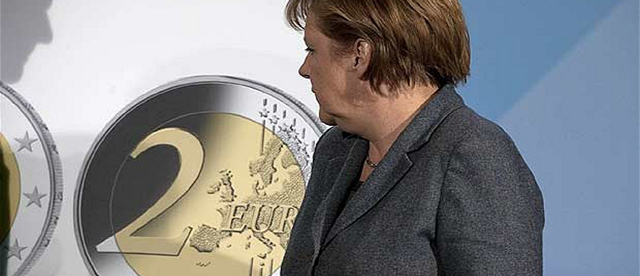The euro has fallen below 1.27 dollars for the first time since November 2012. Moreover, since July, the euro’s depreciation has been of almost 7% versus the American currency. In this context, some analysts, such as the ones at Barclays, bet on an even deeper fall in the coming weeks that may leave the euro close to 1.20 dollars.
Everybody expected the depreciation of the euro after the series of non-conventional measures approved by the ECB. However, the fall of the currency has accelerated in the last days because markets take for granted that, sooner or later, Mr Draghi will have to launch a quantitative easing strategy.
“We are ready to use additional stimulus tools if necessary,” the Italian central banker warned again after seeing the worsening of the economic indicators and the inflation forecasts.
The ECB expects that the heavy fall of the euro have a fast impact on the import and export prices. Market watchers at UBS estimate that a 10% depreciation of the euro would increase by 3% the profits of the Eurozone’s non-financial companies.
The depreciation of the European currency could be the last real choice that the ECB has to fight against deflation and achieve the long-expected recovery. In other to accomplish this, Mr Draghi has a great ally: the strength of the dollar.
The Fed is about to finish its quantitative easing programme and has implied that it will raise interest rates from the middle of next year. Nonetheless, markets remain betting on an increase in the first quarter of 2015.
The strength of the green banknote has another collateral effect: the collapse in commodities’ prices. Oil is below $100 per barrel of Brent -its lowest rate in five moths, while gold is close to minimum levels of the year.
The fall in commodity prices reflects growth at a global level. However, markets’ main concern is the slowdown in the Chinese economy.






Be the first to comment on "Euro’s depreciation gives Draghi a respite"